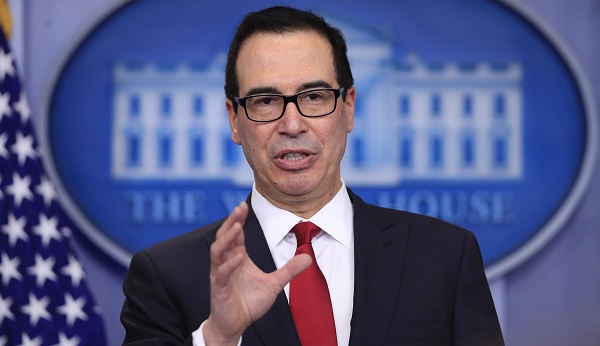More US-China trade talks soon?
December 20, 2018 | Expert Insights

China and the U.S. held vice-ministerial level talks on Wednesday to discuss the ongoing trade dispute as they move closer to meeting in January 2019.
Background
The United States and China are two of the largest economies in the world. Both countries consider the other as a partner in trade and an adversary in geopolitics. Diplomatic relations between the US and China was first established in 1844 with the Treaty of Wanghia. This agreement allowed the US to trade in Chinese ports. After the Qing Dynasty was overthrown, in 1911, the US recognized the legitimacy of the Republic of China (ROC) government.
The U.S.–China Strategic and Economic Dialogue were created in 2009. Every year, high-level representatives from both nations open up dialogue to improve economic partnership. In 2017, the meetings that occurred were reported as being “tense”. Upon conclusion, the two countries cancelled a joint press conference and did not release a statement. They also did not release a plan of action.
US President Donald Trump has previously been a critic of China. He blamed the country for loss of jobs within the US and has often criticized the US trade deficit with China. China's trade surplus with the United States widened in 2017 while total foreign trade volume maintained rapid growth.
The ongoing trade war saw the US imposing tariffs on $200 Billion worth of Chinese exports and Beijing responding with tariffs worth $59 billion on key US agricultural exports like Soy beans.
Analysis
Treasury Secretary Steven Mnuchin said that the two sides spoke by phone and have held several rounds of talks in recent weeks. They plan to hold a formal, face-to-face meeting in January to negotiate a broader truce in their trade wars but are unlikely to meet in person before then, Mnuchin said.
“We’re in the process of confirming the logistics of several meetings and we’re determined to make sure that we use the time wisely, to try to resolve this,” Mnuchin said. Both sides are now focused on trying “to document an agreement” by a March 1 deadline for their current tariffs truce to run out. “We expect there will be meetings in January,” he said. Previously the administration hadn’t been specific on the timing of talks.
The two sides are planning to meet in January, according to Chinese officials with knowledge of the discussions who asked not to be named as the talks were private. China’s Ministry of Commerce didn’t respond to a faxed request for comment.
Mnuchin said neither he nor President Donald Trump was aware of the arrest of a senior executive from Huawei Technologies Co. when they met with China’s Xi Jinping for dinner on Dec. 1, the same day that the company’s chief financial officer was arrested in Canada.
The Treasury secretary also sought to play down the president’s declaration last week that he would be willing to intervene on Huawei’s behalf if it was necessary to help reach a trade deal between the world’s two largest economies.
“We’ve been very clear and China understands that these are separate tracks,’’ Mnuchin said.
He and the president had not had “any direct conversations’’ about the Huawei case, Mnuchin said. He also declined to comment on whether the Treasury Department was preparing a broader case against the Chinese telecommunications-equipment provider, which has been accused by the U.S. of conspiring to violate U.S. sanctions against Iran.
The U.S. was determined to secure the same market access for American companies to China that Chinese companies get to the U.S., Mnuchin said. “And if we do that and there are structural changes, the trade deficit by definition will be a lot more balanced,’’ he said.
Uncertainty about the substance of the truce agreed to over dinner between Trump and Xi on the sidelines of the Group of 20 summit has fed volatility in financial markets in recent weeks. So too have growing concerns about a slowdown in the Chinese economy.
Assessment
Our assessment is that the recent talks between Donald Trump and Xi Jinping at the G20 summit are likely to provide a crucial breakthrough in the ongoing trade war. We believe that we will see further relaxation of tariffs from both countries in the coming months. We also feel that the January 2019 summit will lead to a greater de-escalation of the ongoing trade war.
Read more:








Comments